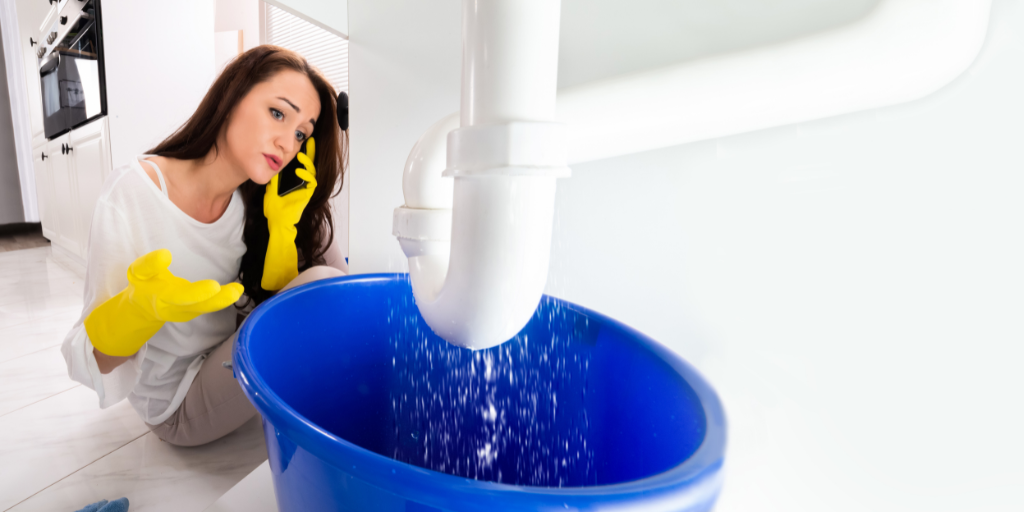Undoubtedly one of the most contentious rental property issues, maintenance disputes between landlords, tenants, and agents frequently lead to court cases or the filing of complaints with the Rental Housing Tribunal. This is typically due to faulty logic and a lack of knowledge of the legal concepts governing the upkeep obligations in a rental property.
What maintenance are landlords responsible for?
“The upkeep of the building’s structural components, such as painting and maintaining the external walls and roof, falls under the purview of the landlord,” says Pearl Scheltema, CEO of Fitzanne Estates, a prominent real estate agency offering letting services in Gauteng. Repairing roof leaks, dampness, and rising damp would be part of this. In addition, they are responsible for the maintenance of the stove, geyser, electric fence, alarm systems, automated gate motors, and pool pumps, if any, as well as the electrical wiring and plumbing. If there is a pool, the landlord is responsible for fixing any pool leaks and keeping the pool covers in good condition given the water restrictions. The interior maintenance of the property, as well as any necessary care of the pool and garden, is the tenant’s responsibility.
When a tenant moves in, the landlord is responsible for making sure the property complies with health and safety requirements, and the tenant is responsible for keeping the property in the same condition.
Should normal ‘wear and tear’ occur, any repairs are required to be made by the landlord. Although homeowners’ insurance is often advised by most real estate agencies offering letting services in Gauteng, it does not always cover “wear and tear,” so it is crucial to routinely maintain the property’s general upkeep. For example, homeowners’ insurance is highly suggested to protect landlords in the event of burst geysers. However, the tenant is responsible for certain maintenance and must notify the landlord of any problems.
What maintenance are tenants responsible for?
Tenants are responsible for repairing any damage to the building’s structure and fittings caused by their negligence, failure to disclose problems, or failure to maintain the property. All gutters and pipelines must be kept clear of obstructions; therefore, tenants are responsible for paying for blocked drains and roof leaks caused by neglected gutter maintenance.
Applicable legislation
According to the Rental Housing Act, the landlord must give the tenant a home that is in “habitable” condition. This means that the home must be secure and adequate for habitation, specifically in light of:
- Adequate space;
- Protection from the elements and other threats to health;
- Physical safety of the tenant, the tenant’s household, and visitors; and
- A structurally sound building.
Additionally, the landlord is responsible for keeping the outside of the property, including the walls and roof, as well as the electrical, plumbing, sanitary, heating, ventilation, air conditioning, and elevator systems in good working order so that the tenant can use the space without interruption. And now for the BIG one: the landlord is responsible for replacing any goods that are damaged beyond normal wear and tear.
The Rental Housing Act’s Unfair Practice Regulations also state that the landlord must make repairs for which he is responsible (as determined during inspections or upon receiving a notice from the tenant to make such repairs) within 14 days or any other time frame that the landlord and tenant may agree upon.
On the other hand, the same Rental Housing Act imposes obligations on the tenant with regard to maintenance, stating that the tenant must keep the property clean, orderly, and in good repair; use all facilities and appliances—including those for heating, ventilation, and air conditioning—reasonably; and refrain from intentionally or negligently damaging the property.
According to the Rental Housing Act, the tenant is also responsible for keeping the swimming pool, including but not limited to all pumps, hoses, and accessories in good working order and repair, subject to normal wear and tear. Other items that must be kept in good working order and repairs include water-borne taps, stoves, locks, handles, and windows. And of course, maintaining and keeping the garden tidy, if there is one.
The necessity of entry and exit inspections
This takes us to the crucial legal necessity of inspections, which must be performed at the start of a lease, at its renewal or termination, as well as if there are any checks made in between. These procedures are greatly simplified by the involvement of a real estate agency offering letting services in Gauteng, as the landlord feels more secure knowing that the tenant is taking good care of the property.
Inspections should contain printed documentation that has been digitally signed on-site by all parties. To ensure process transparency and maintain the report’s credibility, an inspection is carried out once more after exit using the same comparisons.
This procedure safeguards the tenant’s security deposit and helps settle any potential disagreements over current and past maintenance concerns, damage, and liability determination.
To keep buildings properly maintained, especially when the winter frost lingers, it is crucial that tenants and landlords (or tenants and managing agents who will communicate with landlords on the tenants’ behalf) have an honest and open relationship.
Fair wear and tear
Next comes the most important requirement for tenants: they must return the property undamaged, with normal wear and tear excluded. Keep in mind that this also requires the tenant to properly clean the property before they vacate. When cleaning, we must consider whether the property is sufficiently clean for a new tenant to be satisfied.
Let’s now take a closer look at FAIR WEAR AND TEAR, which refers to loss or damage to a product that results from regular usage and exposure over time. The term “exposure” describes how natural factors, such as sunshine and rain, affect a piece of property, furniture, or other furnishings. What effects do wear and tear items have on tenants?
A basic rule of thumb is that if a tenant damages anything that typically lasts a long time or significantly reduces the lifespan of something that typically lasts a long time, the tenant may be charged the pro-rated cost of the item. The cost of replacement as well as the item’s age and potential lifespan should be taken into consideration by the landlord.
The state of the property shall not be unfairly improved by the landlord or unfairly made better than it was when the tenant moved in. For instance, if a building’s interior was last painted four years ago and a decent coat of paint is generally regarded to last five years, and if a renter damaged or soiled one wall, the landlord cannot have the tenant pay to have the entire property repainted. He should only bill the tenant for repainting the dirty or damaged wall, and he should also consider that he would have had to fairly repaint the house himself within the following year.
Common examples of fair wear and tear:
- Faded paint or wallpaper due to sunlight
- Carpet wear caused by normal use
- Furniture marks on the carpet
- Warped doors caused by age, temperature, or moisture
- Warped windows caused by the flow of the glass
- Dents in walls from door handles
- Broken appliances, if not from misuse
- Faded curtains
- Dirty grout
- Tarnish on bathroom fixtures
- Loose handles or doors on kitchen or bathroom cabinets
Common examples of what is NOT fair wear and tear:
- Holes in the walls
- Broken tiles or fixtures in bathrooms
- Clogged Drains and Toilets due to misuse – flushing Pads, Nappies, etc.
- Broken or chipped plaster on walls
- Removing paint and repainting where the tenant painted a wall badly
- Tears, holes, or burn marks on carpets, curtains, or wooden floors
- Animal stains in the carpet caused by domestic animals or leaking fish tanks
- Broken windows and window screens
- Broken doors and locks
- Broken appliances due to negligence
- Excessive dirt in the oven or on the stove
- Broken or missing window blinds
- Flea and pest extermination
- Excessive mildew and mould in the bathroom
- Excessively dirty bath, shower, sink, mirrors, or toilet
- Cracked kitchen or bathroom countertops
In addition to the obligations outlined in the Rental Housing Act, which apply even if they are not specifically mentioned in the lease, a good lease agreement will also include additional obligations that are just, reasonable, and doable.
How to avoid arguments and legal fights related to maintenance issues:
Regardless of whether you are a landlord or tenant, educate yourself by becoming familiar with the pertinent laws and understanding what is expected of you under the conditions of the lease that you signed.
If an item that the landlord is accountable for becomes defective, you as the tenant must notify it as soon as you become aware of it. Do not abandon them before they develop into an urgent situation and become your responsibility.
Regular property inspections by the landlord and the agent are necessary to spot any potential issues early on.
Don’t wait until the end of the lease to perform any necessary repair; instead, do it when it is convenient and necessary.
Don’t hesitate to use your common sense and act morally!
Make use of the services of a professional real estate agency offering letting services in Gauteng, such as Fitzanne Estates, to handle all issues fairly and correctly.
Fitzanne Estates offer letting services over the whole of Gauteng and will find the perfect tenant for your rental property. Should you want to let a house or flat, FITZANNE ESTATES, as a letting agent, can offer the following all-inclusive package of services for your convenience of mind.
Contact us today.
Read more
What to Expect When Appointing a Managing Agent
Sectional Title Scheme Conduct Rules: What you need to know
How can directions or restrictions be placed on trustees?
Media contact: Cathlen Fourie, +27 82 222 9198, marketing@fitzanne.co.za https://www.fitzanne.co.za/
More about Fitzanne Estates
Fitzanne Estates (Pty) Ltd is a Property Management Company that can sufficiently administer your property investment to the benefit of the Landlord, the Body Corporate, and the NPC – Non-Profit Company. Services include Letting, Sectional Title Management, Full Title Management (NPC – Non-Profit Company) and Sales.
Website: https://www.fitzanne.co.za/
LinkedIn: Fitzanne Estates
Twitter: @FitzanneEstates
Facebook: @fitzanne.estates
Instagram: @fitzanneestates
YouTube: Fitzanne Estates
Podcast: Fitzanne’s Property Exchange





